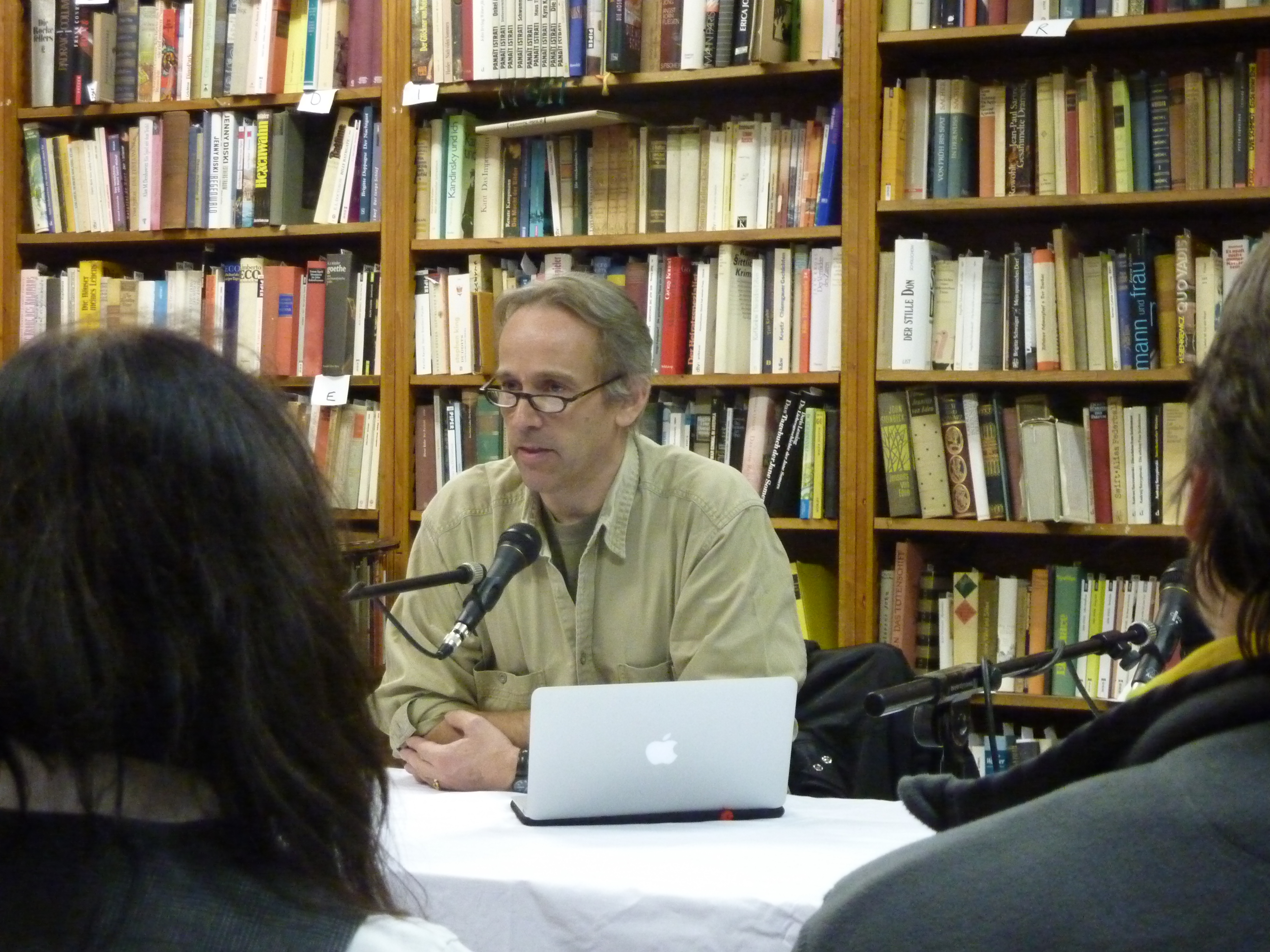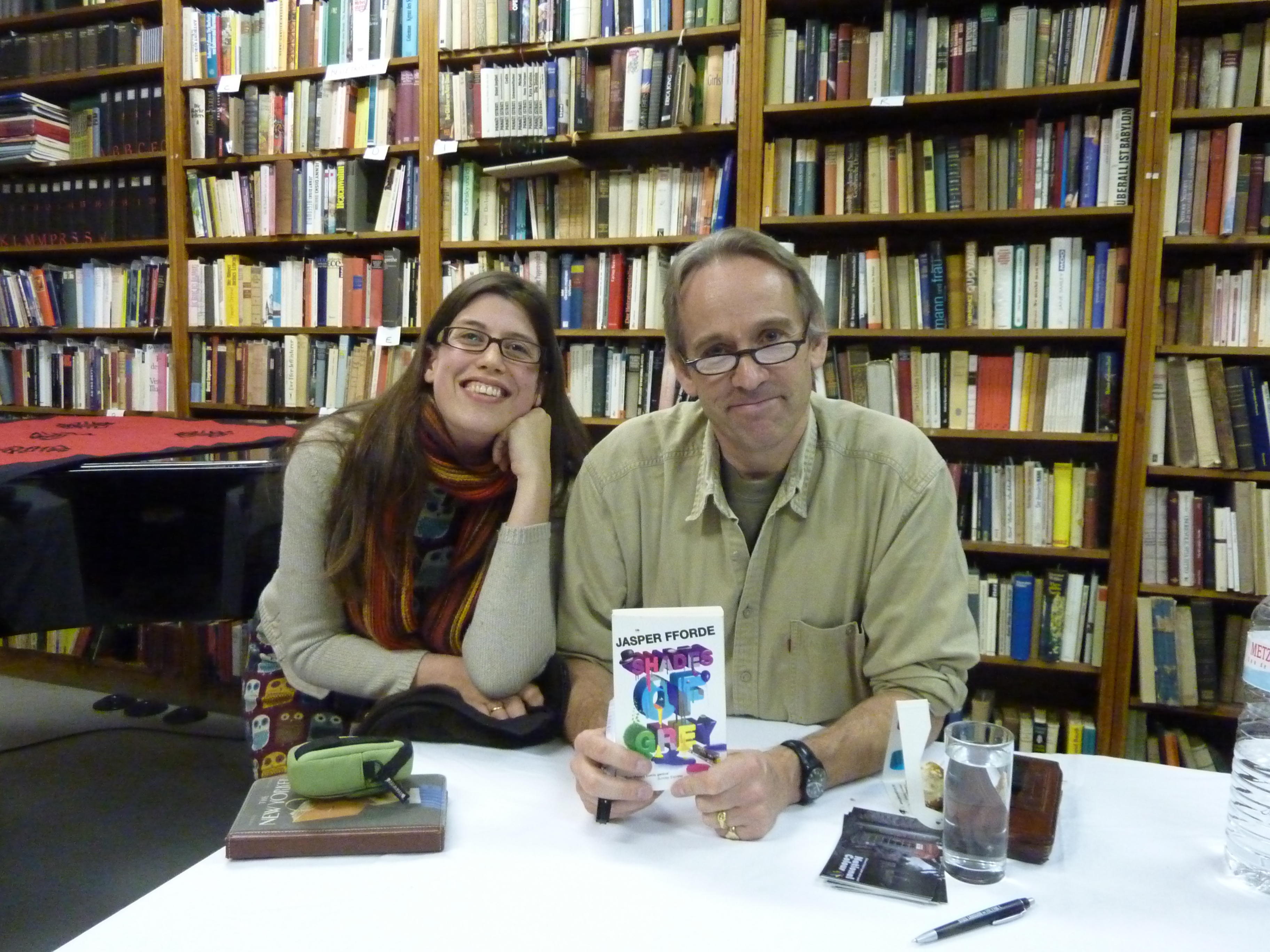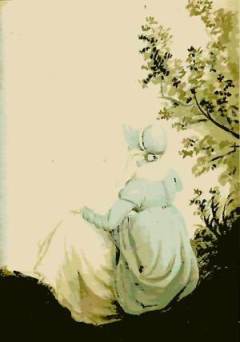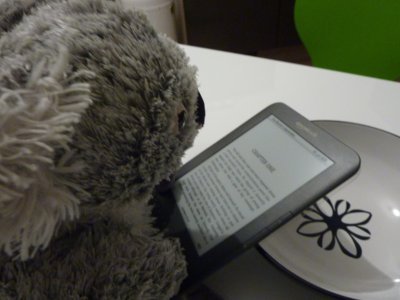This year I read a lot. According to Goodreads I made a total of 73 books, missing my goal of 75 just by two books. I guess this has mostly to do with the fact that I work somewhere else than where I live and that includes a lot of time spent alone, riding trains and the fact that I finally got a Kindle in February which makes carrying books around much easier.
Somehow there were no real highlights, except one book really close to the end of the year which broke my heart in all kinds of ways but is unfortunately not (yet?) translated to English.
10. Fuzzy Nation by John Scalzi
This book got into the Top Ten list mostly on cuteness. Apart from that it is a pretty standard science fiction story with some additional extraterrestial lawyer stuff. And then it’s cute. because there are Fuzzies. And Fuzzies excel at cute.
In some ways the book is very much written like a movie, which you could hold against the author, but I don’t. It makes for a pretty straightforward and enjoyable read and in fact it made me want to watch the (non-existing) movie. Also, Wil Wheaton is a damn good audio book narrator.
9. Ready Player One by Ernest Cline
Someone from the Sword and Laser book club said that this book is nothing more than a giant WoW quest. Erm, maybe, but that’s what makes it so much fun!
It’s a science fiction story about a massive easter egg hunt within the virtual world of OASIS and it is stuffed with 80s references. So there you go, what’s not to love?
8. Super Sad True Love Story by Gary Shteyngart
I didn’t know what to expect from this book and it’s still a bit hard to describe. A science fiction anti romance maybe? Yes, it’s a love story, but often it doesn’t feel like one, because nearly everyone seems so removed from any kind of honest feelings.
The really fascinating thing though was that the future world described in this book seems very far and very close at the same time. At first look it’s just a strange, strange world, but once you look closer and compare it to where we have come to in the last couple of years, it doesn’t seem so impossible that this is where we’re actually headed. And if that’s not scary, I don’t know what is.
7. The Hunger Games by Suzanne Collins
If you don’t know what this book is about then you’re probably not into YA dystopia books and then you probably won’t read this book anyway, regardless of how good people tell you how it is.
If you don’t believe the hype, make an exception. It’s a really good book. I was also surprised at how much I like the trailer for the movie. In fact I seem to tear up a little every time I watch it, which I hope is a good sign for the movie.
6. Room by Emmy Donoghue
A very strange and horrifying book about a nearly unbelievable crime told from the point of view of five year old Jack. Jack lives with Ma in Room. In Room there is Table and Bed and Wardrobe and it’s all Jack knows about the world.
Room is a great book and I can’t really say a lot more without giving away some of the plot. Suffice to say that I could hardly put it down.
5. The Name of the Wind by Patrick Rothfuss
Apart from the fact that Patrick Rothfuss is a fan of Joss Whedon and seems like a generally cool guy, The Name of the Wind is also a pretty great fantasy book.
It tells the story of Kvothe, also known as the Kingkiller, who tells the story of his life to a nightly visitor. All in all you have your basic fantasy story, but it’s so amazingly tight and well written, that it really stands out from the crowd.
4. Shades of Grey by Jasper Fforde
I’m even more of a Jasper Fforde fan now that I’ve seen and heard him talk in person, and I’ve come to appreciate Shades of Grey more over the year. It’s one of those books that are so easy to read that you don’t grasp how good they really are until later.
And Jasper Fforde strikes again with an imaginative tale about a world somewhen in the future where society is based on color perception, there are flesh eating trees and self-cleaning roads and much more. Wait… WHAT? A society based on color perception? Exactly. Like I said. Just read it and appreciate the wild ride this book takes you on.
3. The Fry Chronicles by Stephen Fry
2011 was the year I discovered QI and now I firmly believe that Stephen Fry might be one of the best things the world currently has to offer.
I read The Fry Chronicles as an audio book narrated by the author (i.e. Mr. Fry) himself which is cool on more levels than is probably healthy. He tells the story of his life from his childhood (briefly) to his mid-twenties and although this seems like a pretty short span to cover, the story isn’t boring for one second and Stephen Fry gets only more likable with each page (or minute, whatever).
2. Dask and Lily’s Book of Dares by Rachel Cohn & David Levithan
I don’t know why exactly I love this book as much as I did. Oh, wait, I do. It has riddles and scavenger hunts and loads of books. And New York City. And Christmas.
It reminded me of books like Markus Zusak’s I am the Messenger or Nicole Krauss’s The History of Love, in that it is just a very simple book which is also incredibly sweet and emotional and just makes you feel warm and fuzzy inside.
1. Die Herrenausstatterin by Mariana Leky
This is just… I don’t even know how to… The book was recommended to me by Isa and I would possibly never have picked it up if it hadn’t been highly recommended.
It’s the story of Katja whose husband has left her and died and now suddenly there’s a man in her bathroom who is invisible to everyone but her and who won’t leave. And there’s also the fireman who suddenly turns up in her life. It’s an incredibly sad book, but it’s also amazingly funny and wonderful and I’ll stop before this turns into a long list of enthusiastic adjectives. Just know that I bawled my eyes out and kicked my pillow because this is how great it is.
(Sadly I don’t know of any English translation, existing or planned.)
So there you go. Anything you’d like to add. If not I’ll see you for the special awards next week.






